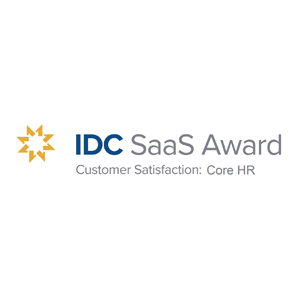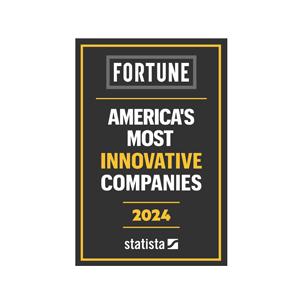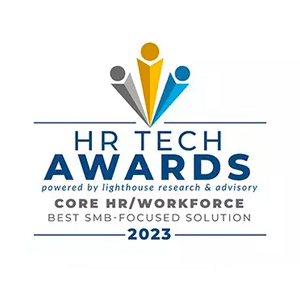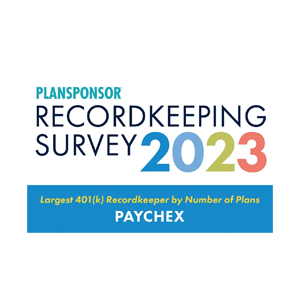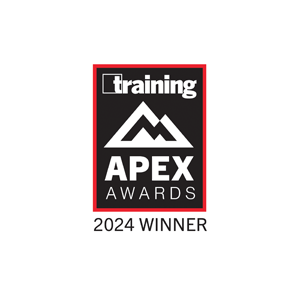
State Mandated Retirement Programs — Are You Ready?
State retirement savings mandates are a growing trend. Your business may soon be required to offer an employee retirement savings option. Should you participate in a state-run IRA or offer your employees a 401(k) plan? With a 401(k) plan, you could potentially get up to $16,500 in small business tax credits and an additional $1,000 per year with employer contributions1. See what your state requires, then compare your options.
What’s Happening in Your State?
Every state is different when it comes to retirement savings mandates. Please note: if you have employees working out of state, you may need to consider that state’s requirements as well as your own. Click on a state to see what’s required.
State IRA or 401(k) Plan — Which Is Better for Your Business?
When employees participate in a retirement plan at work, they are 15 times more likely to save for retirement1. That said, not all retirement plans are created equal. A 401(k) plan from a private provider may be a better way to save for both you and your employees.
IRA vs. Paychex 401(k) Plan
State - IRA
401(k) Plan (Offered with Paychex)
$7,000
$23,000
No
Yes, at employer's discretion
Not available
Potential tax credits of up to $5,500 per year for the first 3 years.
Potential employer contribution credit of $1,000 (maximum) per employee 2
Employer processes payroll contributions, updates contribution rates, adds newly eligible, etc.
Paychex makes administration simpler as your recordkeeper
Paychex 401(k): A More Powerful Option
A state-facilitated IRA has lower employee contribution limits, more administration, and is not eligible for SECURE Act 2.0 small business tax credits. By contrast, a Paychex 401(k) plan:
- Fulfills the state retirement mandate
- Includes help with plan set up and administration
- Has more than three times the annual employee contribution limit of an IRA, so employees can save more, faster
- Offers employer tax savings opportunities, including potential tax credits
- Integrates your 401(k) plan with Paychex payroll—one platform, one provider
- Provides the support and experience of the nation’s largest 401(k) plan provider3

Get help setting up and managing a retirement plan that meets your state’s requirements and the needs of your employees.
How a California Plumbing Business Made Retirement a Fixture
With the state of California requiring most employers to offer an employee retirement option, Plumbing M.D. embraced the opportunity and turned to Paychex. The business saw some surprising results: 100 percent participation in their Paychex 401(k) plan, and employees under the age of 30 who are enthusiastic about the plan.

Reduce Your Business Taxes with SECURE Act 2.0 Tax Credits
The SECURE Act 2.0 offers businesses the ability to establish a 401(k) retirement plan and lower their tax liability. Your business may be eligible to have 100% of your startup costs covered by small business tax credits. That’s a savings of up to $16,500 over 3 years for starting a plan. There is also the possibility of an additional $1,000 credit per employee with employer contributions2.

The Importance of Offering a Retirement Plan
A large percentage of Americans are not building up sufficient assets needed to maintain their standard of living in retirement, and the problem is only getting worse for younger generations.
Nearly
1/4
Without Retirement Savings
About 1/4 of non-retired adults in the U.S. do not have any retirement savings2
$93,000
Household Retirement Assets
The median of total household retirement savings among all workers in 20204
13 years
When Social Security will run out
Social Security will run out of funds in 13 years. It is only funded through 20355
94%
Employees interested in a 401(k) plan
94% of employees are interested in a 401(k) plan, second only to health insurance6
The Simpler Employee 401(k) Plan
Offering a 401(k) plan to your employees doesn’t have to be complicated. As the provider for the largest number of 401(k) plans in the country3, Paychex has 401(k) administration down to a science. Our integrated payroll and benefits solution streamlines plan management and controls costs. With online enrollment, cloud-based account access, and support from retirement specialists, you and your employees can start saving today.
Retirement Insights
State Retirement Plan FAQs
-
What is a state-mandated retirement program?
What is a state-mandated retirement program?
Many states are requiring businesses to participate in a state retirement savings program if they don’t currently offer an employee retirement plan. Businesses that don’t comply and register with their state’s retirement savings program timely could potentially incur state penalties. However, this varies depending on the business size and the state.
-
Why are states requiring employers to offer workplace retirement plans?
Why are states requiring employers to offer workplace retirement plans?
Across America, many states are experiencing a retirement savings crisis. The Federal Reserve reports that roughly a quarter of non-retired adults have no retirement savings3. To deal with this crisis, many states and some cities have enacted legislation to help employees save for retirement through their employer.
-
What type of retirement savings program is offered by the state?
What type of retirement savings program is offered by the state?
Most states offer Roth individual retirement accounts (IRAs), which:
- May require employers to automatically enroll employees at a contribution of three to five percent of payroll wages
- Allow employees to opt out of contributing or change their contribution amount.
- May require employers to do some administration work
- Have an investment line-up selected by the state’s board.
-
Does my business have to participate in a state-sponsored retirement savings program?
Does my business have to participate in a state-sponsored retirement savings program?
No. As an alternative, employers may choose to sponsor a private-sector retirement plan (I.e. 401k plan) to satisfy the state’s requirements.
-
Why should I consider a private-sector 401(k) plan versus a state IRA?
Why should I consider a private-sector 401(k) plan versus a state IRA?
A 401(k) plan has substantially higher employee contribution limits than an IRA, so your employees can save more, faster. You may want to consider a plan that requires reduced time, staff, and cost to manage, like a Pooled Employer 401(k) Plan (PEP). And, employers starting a new 401(k) plan may be eligible for SECURE Act 2.0 tax credits2, which are not available with a state-sponsored IRA. Also, 401(k) plans tend to be popular with employees and may give you an edge in recruiting. Which plan you choose depends on your business needs and the savings goals of your employees.
-
What are the penalties if I don’t comply with state requirements?
What are the penalties if I don’t comply with state requirements?
Penalties for employer non-compliance vary by state, but some can be steep. For example, California’s CalSavers program fines $250 per eligible employee not covered by a retirement program after 90 days of noncompliance, and $500 after 180 days. Even if you have a small number of employees, that could add up.
-
What if I already offer an employee retirement plan?
What if I already offer an employee retirement plan?
You may register your business for an exemption from the state’s IRA program. Check with your state for instructions on this process.
-
How do I stay up to date on my state’s retirement mandate laws?
How do I stay up to date on my state’s retirement mandate laws?
Many laws are still in the proposal stage or haven’t been implemented yet. Check back here periodically and click on our map to see the status of mandatory retirement in your state.




